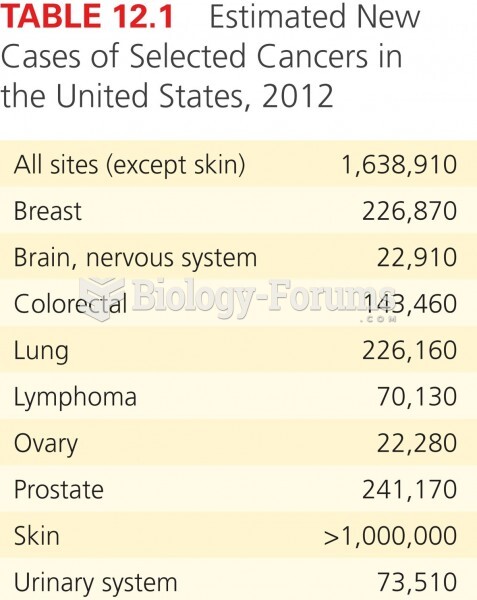|
|
|
If you could remove all of your skin, it would weigh up to 5 pounds.
About 100 new prescription or over-the-counter drugs come into the U.S. market every year.
Hypertension is a silent killer because it is deadly and has no significant early symptoms. The danger from hypertension is the extra load on the heart, which can lead to hypertensive heart disease and kidney damage. This occurs without any major symptoms until the high blood pressure becomes extreme. Regular blood pressure checks are an important method of catching hypertension before it can kill you.
The familiar sounds of your heart are made by the heart's valves as they open and close.
Stroke kills people from all ethnic backgrounds, but the people at highest risk for fatal strokes are: black men, black women, Asian men, white men, and white women.






